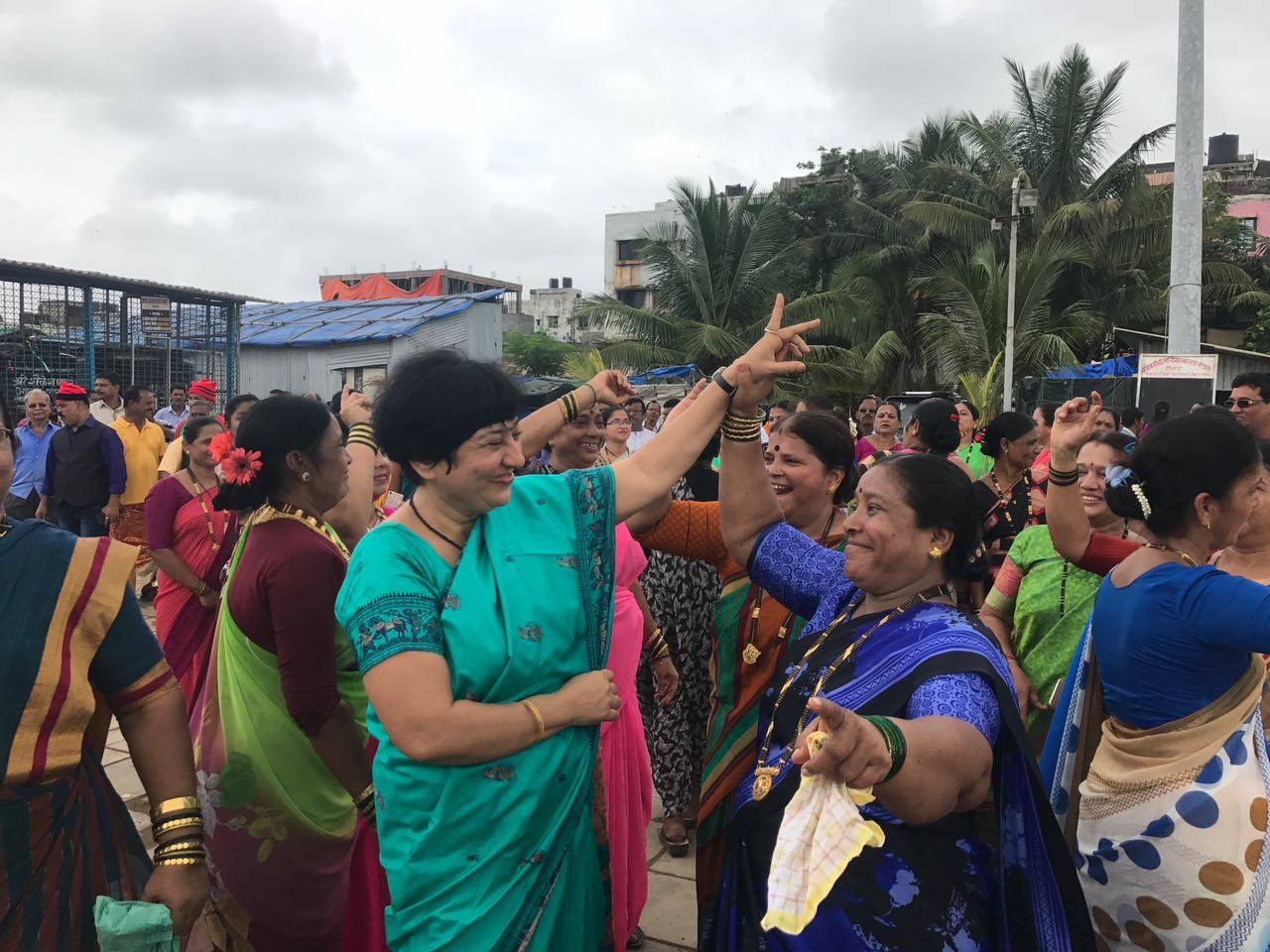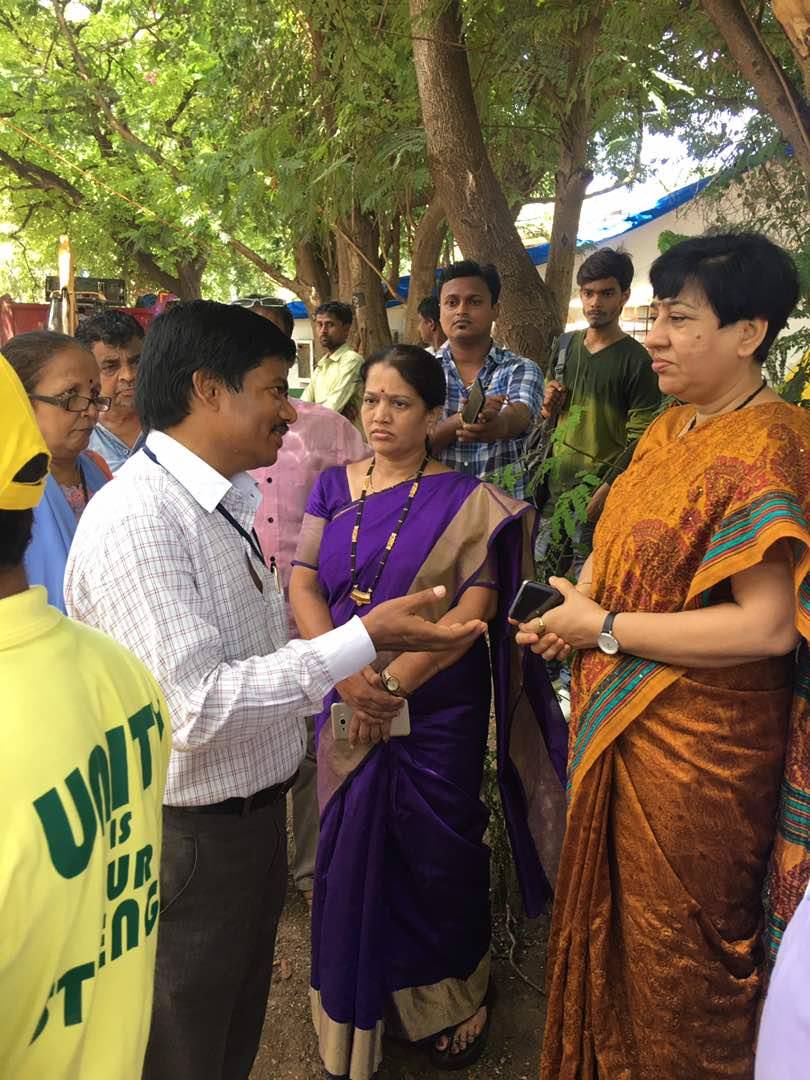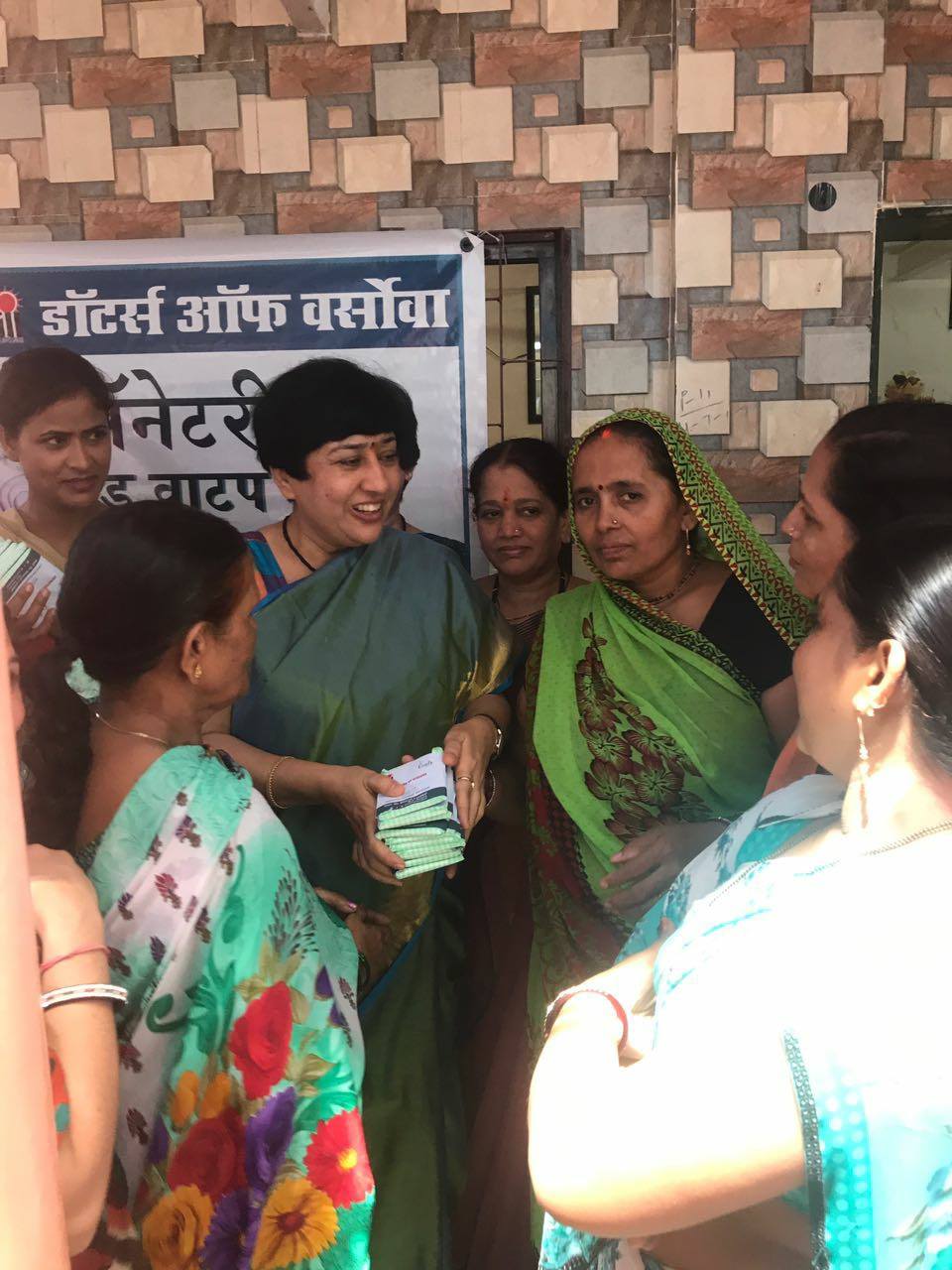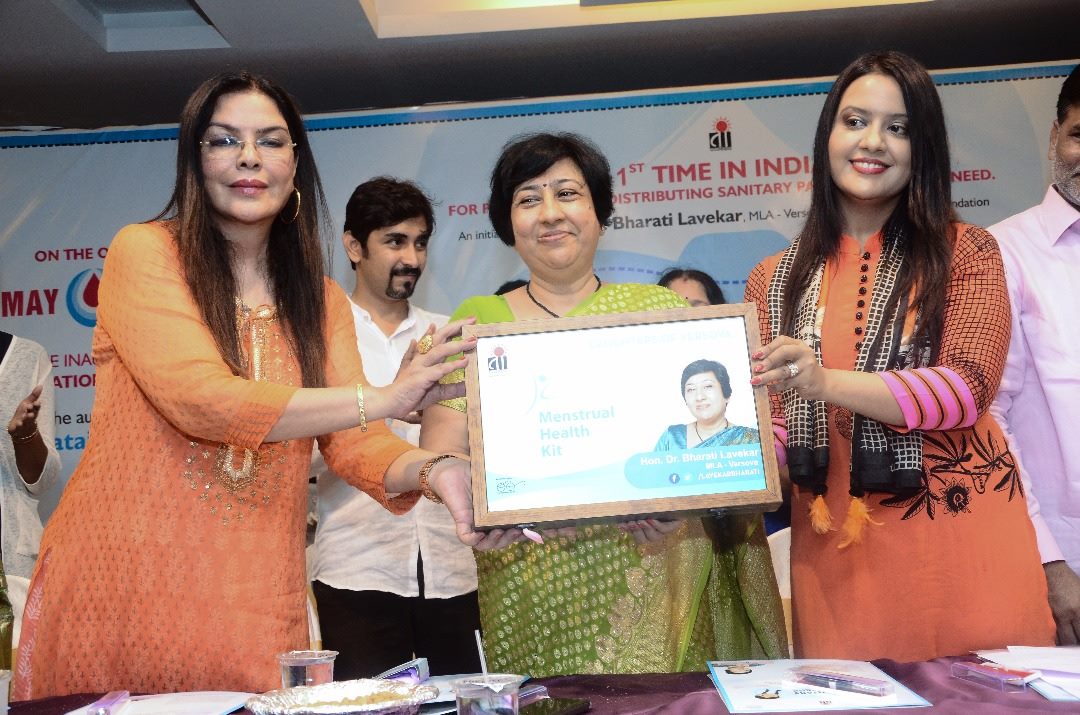Interview: Dr Bharati Lavekar, the MLA Who Introduced India’s First Sanitary Pad Bank
"I was shocked to hear some women say they use leaves, old ragged dupattas, and dirty discarded napkins even. This was not just an eye-opener for me - but was extremely disturbing.”

Dr Bharati Lavekar is a sitting MLA from Versova in Mumbai. As a member of the assembly, she has, many times, drawn the attention of fellow legislators towards the unaffordability of sanitary pads by women living in rural areas, those who work for a daily wage, or those who live below the poverty line.
Dr Lavekar established TEE foundation, an NGO based in Mumbai in 2009. This NGO focuses on eradicating and creating awareness about issues like female foeticide, sanitation and hygiene, women’s education and gender inequalities.
The 2011 census statistics was perhaps one of the reasons why Dr. Bharati took up the cause of women even more passionately.
She says, “The sex-ratio in the Beed district stood at a pitiable 801 girls to 1000 boys. In the Shirur-Kasar taluka, it was 733. In Shirur specifically, the ratio was a shocking 669. I had long discussions with the women in these areas to understand and identify the problem.”
Not wanting to merely find short-term solutions, Dr Bharati started spending more time in the area with the local women.

In 2011, Dr Bharati adopted 120 villages within the Shirur taluka. She says, “To put an end to female foeticide in these areas and also encourage parents to have daughters, we came up with a scheme wherein we would deposit a sum of ₹5000 into the account of the girl child if born post-August 15, 2011.”
This scheme was working, and people in these areas were coming forward to at least find out more.
When the villagers would be asked what they would do when their sons had to be married, they would say that the girl would come from another village. This was the mindset that needed to be changed.
In collaboration with Aakar Innovations, The Better India is setting up a sanitary pad manufacturing unit in Ajmer, Rajasthan, that will not only produce eco-friendly or biodegradable sanitary pads, but will also employ women from rural communities around the area.
Contribute for the campaign here.
Unable to view the above button? Click here
While speaking to The Better India, Dr Bharati mentioned how it took a long time for change to occur but the heartening part was seeing that over a period of a few years, the ratio went up to 921:1000.
In 2014, Dr Bharati contested the elections and won from her constituency. Her winning the seat ensured that the issue of menstruation was brought back to prominence.

“During a visit to my constituency I heard from a cross-section of women about the various menstruation practices that they followed. I was shocked to hear some women say they use leaves, old ragged dupattas, and dirty discarded napkins even. This was not just an eye-opener for me – but was extremely disturbing.”
She went on to say, “There are statistics to show that only 15 percent of women in India can afford to buy sanitary napkins. This causes severe infections and increases the risk of cervical cancer. Sanitary napkins are essential for menstrual hygiene as 27 percent of women die due to cervical cancer.”
The one-of-its-kind Sanitary Pad Bank was inaugurated on 28 May 2017, which is celebrated as World Menstruation Hygiene Day.

“Donors can donate either money or sanitary pads. A packet of ten pads cost seven rupees. The foundation will make sure it reaches those in need. This is also one way to overcome the taboo of menstruation,” said Dr Bharati.
The bank provides sanitary napkins to tribal women and non-tribal women. In case a tribal woman wishes to avail the services of this bank she can do so without presenting any identification.
Non-tribal women will have to present their orange ration card to register with the bank. Once registered, they get ten sanitary pads per month. Keeping up with the digital age, women can also register through Facebook and by visiting the office or by making a phone call.
Dr Bharati was also the first MLA to allocate a definite budget to work towards this cause. She was also instrumental in getting sanitary napkin vending and disposable machines in schools and public toilets.
Now that access to sanitary pads has gotten slightly better, her next project is to install sanitary pads disposal machines and educate people about methods of disposing used pads.

She says, “Sanitary napkins, if not disposed of properly, can create major troubles. If not discarded properly, these sanitary napkins can cause various infections for the sanitation workers and even scavenger animals.”
Making the disposal of sanitary napkins a talking point and including it under the Swachh Bharat Abhiyan is her next step.
In collaboration with Aakar Innovations, The Better India is setting up a sanitary pad manufacturing unit in Ajmer, Rajasthan, that will not only produce eco-friendly or biodegradable sanitary pads, but will also employ women from rural communities around the area.
Contribute for the campaign here.
Unable to view the above button? Click here
If you wish to connect with her, do visit her Facebook page here.
Like this story? Or have something to share?
Write to us: [email protected]
Connect with us on Facebook and Twitter.
NEW: Click here to get positive news on WhatsApp!
If you found our stories insightful, informative, or even just enjoyable, we invite you to consider making a voluntary payment to support the work we do at The Better India. Your contribution helps us continue producing quality content that educates, inspires, and drives positive change.
Choose one of the payment options below for your contribution-
By paying for the stories you value, you directly contribute to sustaining our efforts focused on making a difference in the world. Together, let’s ensure that impactful stories continue to be told and shared, enriching lives and communities alike.
Thank you for your support. Here are some frequently asked questions you might find helpful to know why you are contributing?


This story made me
-
97
-
121
-
89
-
167













